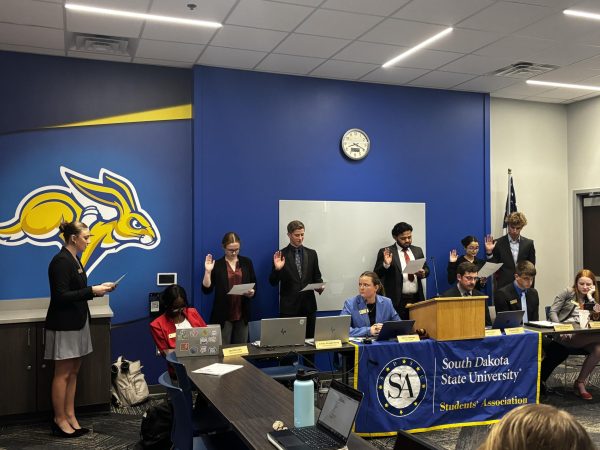Chick-fil-A debate should address discrimination
September 11, 2012
Regardless of the outcome, I commend the Student Senate for their discussion of Chick-fil-A’s establishment at SDSU. University lawyers have deemed this an issue of “free speech.” It is not. Mr. Cathy still has the freedom to hold and speak his opinions and give his money to whomever he pleases, even if that money ends up supporting people who would criminalize homosexuality. What he does not have is automatic acquiescence, and if he has the courage of conviction, he will take responsibility that goes with that freedom and take the consequences for his actions. That’s life. No freedom comes without responsibility.
However, every debate of this issue is missing an important element. So far we have failed to address a larger issue brought to the fore by this debate. Some feel that for a group of voters (a community, a university, etc.) to deprive a business of its right to try its luck wherever it wants is unfair, and runs counter to the idea of the United States as a bastion for individual freedom. But isn’t that what has happened regarding gay marriage? A total of 31 states have amended their constitutions to refuse to recognize gay unions in various forms. Through a vote, a majority in those states have declared that one group of people has a civil right and another does not. Can we now deny the same right to groups of voters who wish to keep businesses with certain practices or philosophies out of their communities? If so, it would seem that we are once again saying that one group of voters has a right, but another doesn’t.
My point is that to codify into law discrimination that deprives one group of citizens a civil right is a very slippery slope and perhaps this is a time to also debate the wisdom of allowing voters to decide civil rights. If we really wish to defend Chick-fil-A’s right to do business where they please, then perhaps we should work really, really hard to repeal the destructive codification of discrimination into our own state’s Constitution.
Maria C. Spitz, PhD
Dept of Modern Languages





















